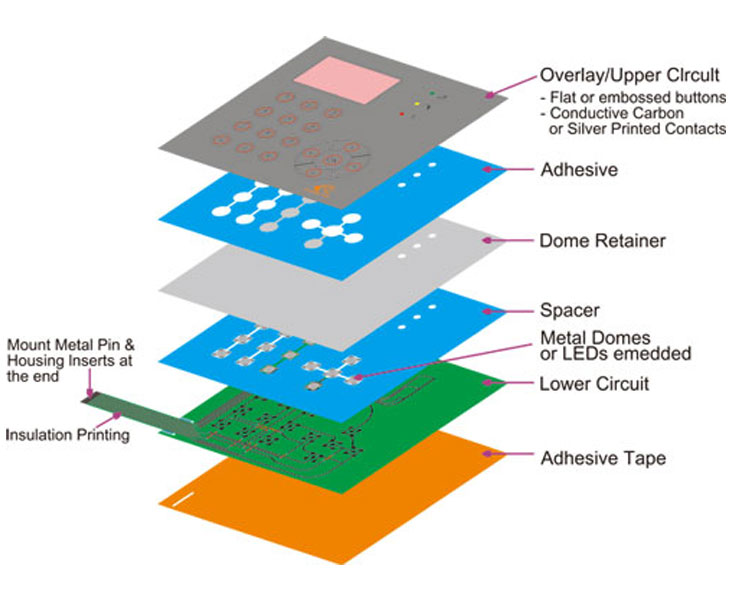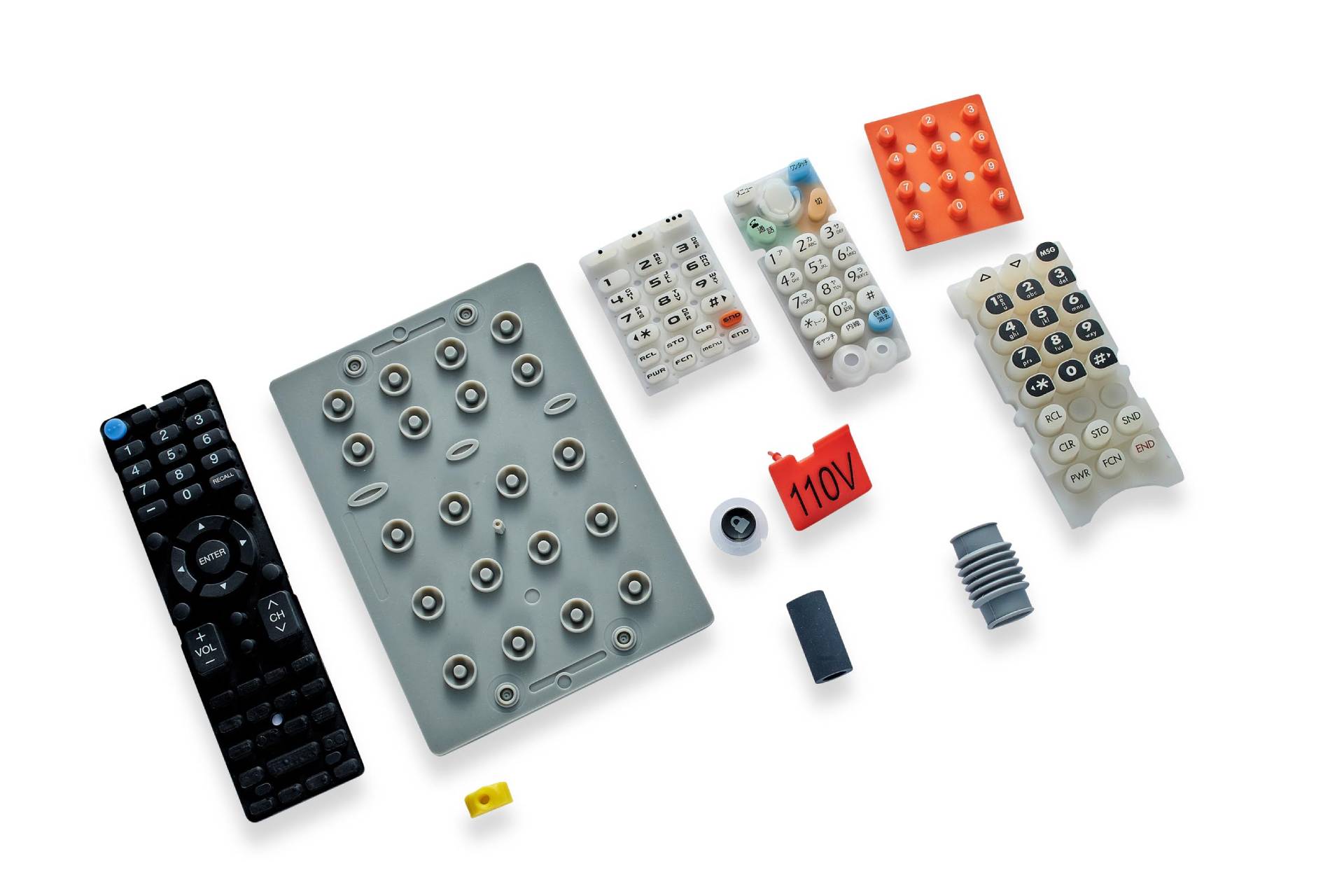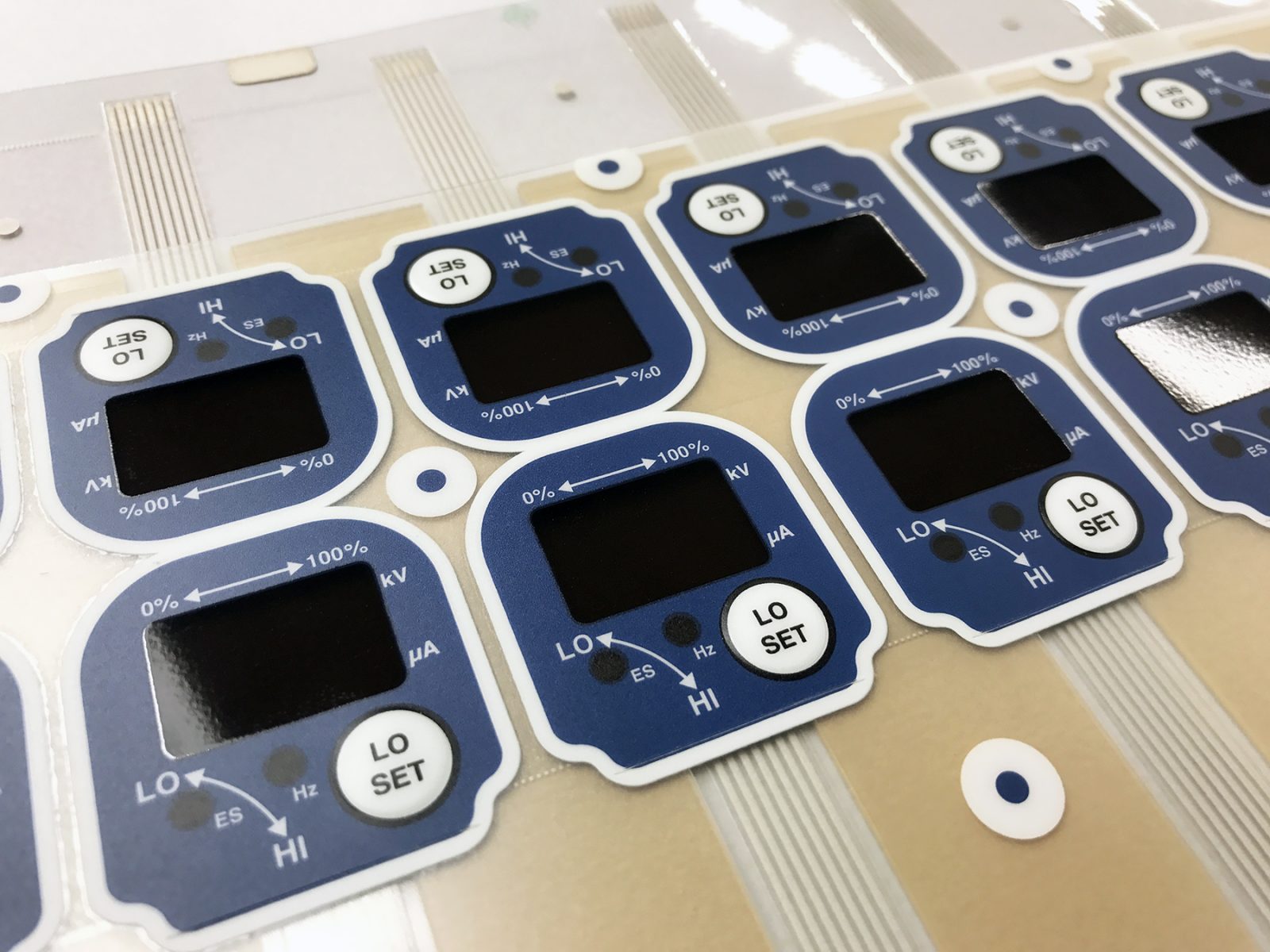Reliable Membrane Switch Manufacturer for Tailored Electronic Interfaces
Recognizing the Importance of Membrane Switch in Modern Electronic Devices and Their Applications
Membrane switches over work as an important element in modern-day electronic devices, offering an efficient user interface for user communication. Their lightweight and customizable nature makes them suitable for an array of applications throughout diverse markets. Recognizing their crucial components and benefits can give understandings into their growing significance. As technology continues to advance, the advancement of Membrane changes raises inquiries about their future applications and layout technologies. What exists ahead in this vibrant area?

What Are Membrane Switches?
Membrane switches are important components in contemporary electronics, working as interface that facilitate interaction between gadgets and users. These buttons include a number of layers, including a visuals overlay, a glue layer, and a circuit layer, all of which collaborate to create a practical and resilient interface. The layout permits a flat, low-profile solution that can be personalized relating to size, shape, and aesthetic appearance, making them ideal for different applications, from customer electronic devices to medical tools. The tactile responses supplied by Membrane switches enhances individual experience, while their resistance to dust and moisture makes them ideal for challenging environments. Membrane buttons can integrate attributes such as backlighting and published graphics, better broadening their functionality. Their versatility and toughness make them a recommended selection in sectors where integrity and ease of use are vital, inevitably adding to the smooth procedure of modern-day digital gadgets.
Key Parts of Membrane Switches Over
While different components add to the functionality of a membrane switch, three main layers play considerable functions in its design and operation. The leading layer, commonly made from a durable polymer, acts as the user interface for customer interaction, often including published symbols and graphics. Underneath this is the spacer layer, which preserves the required range in between the leading layer and the circuit layer. This spacer layer warranties that the switch activates only when pressed, preventing accidental inputs. The circuit layer has conductive traces that finish the electrical circuit when the leading layer is depressed. These traces can be made from various materials, including copper or silver. With each other, these components create a robust and trusted tool that is compact and flexible, appropriate for a variety of electronic applications, from house appliances to medical tools. Recognizing these essential components is essential for appreciating the total capability of Membrane switches.
Advantages of Making Use Of Membrane Switches Over

Membrane Switch Production Refine
Comprehending the Membrane switch manufacturing process reveals the intricate actions associated with producing these important parts. The process generally starts with the layout phase, where designs and specs are created making use of specialized software program. Following this, the visuals overlay is printed on an adaptable substratum, frequently utilizing high-resolution printing techniques to ensure clarity and precision.Next, the sticky layers are applied, which serve to bond the different components together. The circuit layers, made from conductive inks or products, are then printed onto a separate substratum. These layers are carefully straightened and laminated to create a practical switch.After setting up, the buttons undergo checking to validate capability and toughness. Quality assurance steps are applied throughout the process to recognize and correct any type of issues. Finally, the completed Membrane buttons are packaged and planned for distribution, all set to fulfill the demands of contemporary electronic applications.
Applications of Membrane Changes in Different Industries
Membrane buttons are increasingly made use of across different industries, particularly in clinical tools and consumer electronics. In the medical area, they supply reliable control interfaces for tools that call for accurate procedure. In a navigate to this website similar way, in consumer electronic devices, these switches improve individual communication by supplying responsive and sleek interfaces.
Medical Tools Control
Various contemporary medical gadgets utilize Membrane switches for structured procedure and enhanced individual interaction. These switches provide a reliable, sturdy interface for a range of applications, consisting of diagnostic equipment, person monitoring systems, and medical tools. Their customizable styles enable specific layouts that can suit the distinct needs of medical care specialists, ensuring intuitive navigation and effective access to crucial functions. Additionally, Membrane buttons are immune to impurities, making them ideal for clean and sterile settings. The responsive responses they supply can boost individual self-confidence, lowering the threat of mistakes during important medical procedures. Overall, the integration of Membrane switches in clinical devices considerably contributes to improved functional effectiveness and individual security in healthcare settings.
Consumer Electronic Devices Interfaces
In the domain name of consumer electronic devices, Membrane buttons play an essential duty in boosting individual interfaces throughout a large range of gadgets. wikipedia reference These switches are important to items such as push-button controls, microwaves, and gaming consoles, giving a effective and user-friendly user interface. Their design permits for a smooth combination of graphics and performance, enabling makers to create sleek, contemporary aesthetics without jeopardizing use. Membrane switches are likewise understood for their longevity, typically withstanding substantial usage and direct exposure to different ecological problems. In addition, they can include features like backlighting and tactile responses, more enhancing the individual experience. As consumer demands for innovative yet intuitive user interfaces expand, Membrane changes continue to be a vital element beforehand electronic tool capability.
Style Considerations for Membrane Changes
Creating effective Membrane changes calls for mindful focus to various aspects that influence both capability and customer experience. One important factor to consider is the choice of materials, as they can influence sturdiness, tactile feedback, and aesthetic allure. Choosing an ideal adhesive is necessary for guaranteeing lasting adhesion and resistance to ecological factors.In addition, the design and design of the switch have to fit customer interaction, with switch sizes and spacing optimized for simplicity of usage. The incorporation of graphics and labeling must focus on clearness and presence under various lights conditions.Consideration of electric qualities, such as actuation pressure and button sensitivity, will improve the responsiveness of the Membrane switch. Moreover, the layout ought to accommodate producing procedures to assure cost-effectiveness and prompt manufacturing. Generally, a well-thought-out style improves both the capability and the individual experience of Membrane switches in modern-day electronic devices.

Future Patterns in Membrane Switch Technology
As technology remains to progress, Membrane switches are positioned to integrate new developments that will certainly enhance their capability and application in various fields. One significant fad is the consolidation of adaptable and sturdy materials, which will certainly increase the lifespan and dependability of these switches. Improved surface textures and find out customizable graphics are additionally expected, enabling more intuitive individual interfaces.Moreover, the assimilation of wise technology, such as touch-sensitive surfaces and haptic feedback, is expected to improve individual interaction, making Membrane changes much more appealing and receptive. In addition, developments in printed electronic devices will enable a lot more complicated wiring within thinner profiles, even more increasing design possibilities.Sustainability will likewise play a vital duty in future advancements, as makers discover eco-friendly materials and manufacturing procedures. In general, these fads will ensure that Membrane switches over stay essential and relevant in a increasingly digital and interconnected world.
Frequently Asked Questions
Just How Do Membrane Switches Over Contrast to Traditional Mechanical Buttons?
Membrane switches deal advantages over conventional mechanical buttons, consisting of reduced size, lighter weight, and enhanced durability. They typically provide a secured surface, enhancing resistance to dirt and wetness, making them perfect for diverse applications.
What Products Are Typically Used in Membrane Switch Building?

Can Membrane Switches Over Withstand Extreme Environmental Issues?
Membrane switches can stand up to extreme ecological conditions, relying on their style and products. Top quality buildings usually feature sturdiness versus temperature level changes, humidity, and direct exposure to chemicals, making them suitable for numerous demanding applications across sectors.
The Length Of Time Do Membrane Switches Normally Last Prior To Failure?
Membrane switches over commonly display a life-span varying from 1 to 10 million actuations, relying on factors such as usage regularity, ecological conditions, and manufacturing top quality. Normal upkeep can extend their resilience and functional integrity considerably.
Are Membrane Changes Customizable for Details Applications?
Membrane switches are undoubtedly adjustable for details applications. They can be customized in size, design, and functionality, enabling manufacturers to meet unique user demands and boost product aesthetics while preserving operational performance and longevity. Membrane switches are important components in modern-day electronic devices, offering as customer interfaces that help with communication between individuals and tools. The responsive comments given by Membrane switches over enhances user experience, while their resistance to dust and dampness makes them suitable for testing settings. The consolidation of graphics and labeling should focus on quality and exposure under various lighting conditions.Consideration of electric attributes, such as actuation pressure and switch level of sensitivity, will certainly enhance the responsiveness of the Membrane switch. Improved surface area textures and customizable graphics are likewise anticipated, enabling for more intuitive customer interfaces.Moreover, the integration of smart innovation, such as touch-sensitive surfaces and haptic comments, is anticipated to enhance user communication, making Membrane switches over more engaging and receptive. Membrane switches over offer advantages over traditional mechanical switches, including lowered size, lighter weight, and boosted longevity.